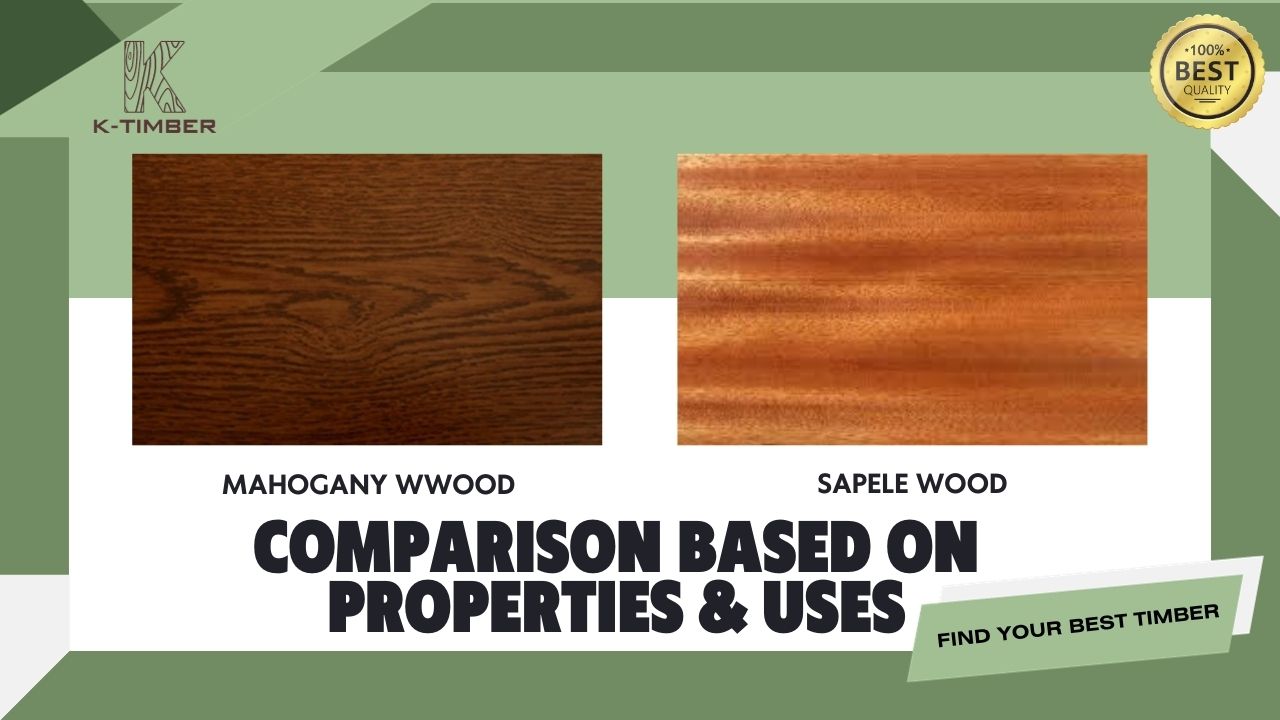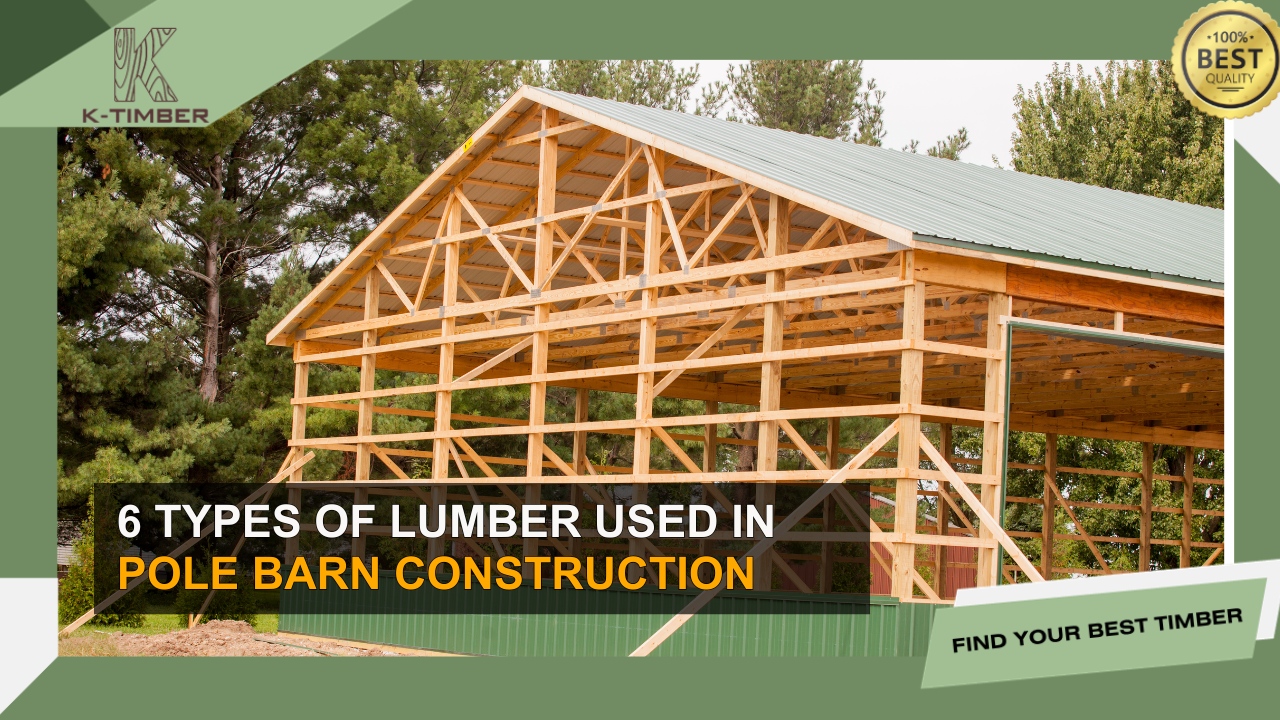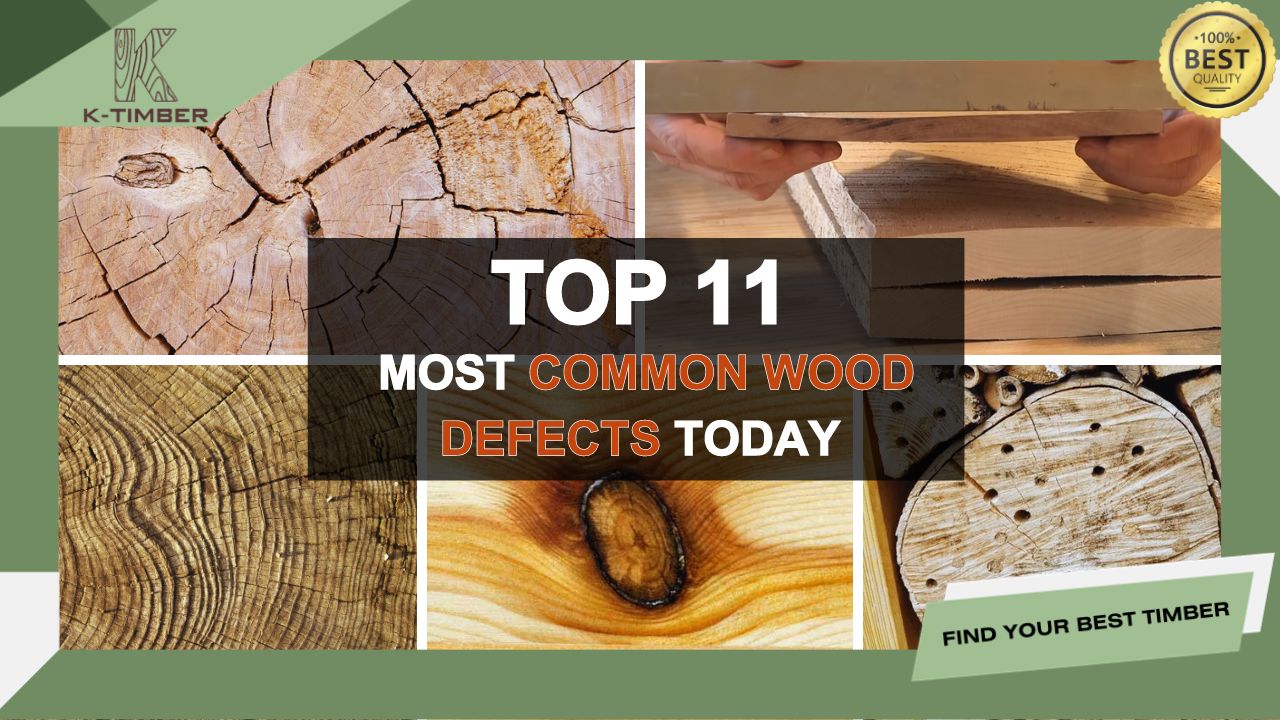With their remarkable strength, durability, and beauty, African hardwoods are considered the best worldwide. Their slow growth rate results in very strong timber, perfect for various uses from indoor to marine.
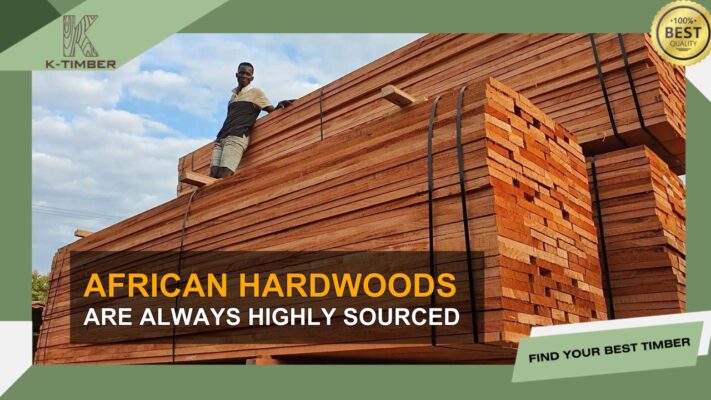
This guide will show you why African hardwoods are so highly valued as well as highlight some of the most sought-after species like Iroko, Sapele, etc.
Table of Contents
Why Choose African Hardwood for Your Next Project?
Firstly, let’s come to the basic characteristics of African hardwoods to understand why they are preferred by purchasers around the world.
Rich Diversity of Species
Being a resourceful tropical region, Africa is home to a vast diversity of hardwood species, with over 1,000 different types found across the continent. They have been exploited to serve specific needs, whether for furniture, flooring, or decorative elements.
Each species of African hardwood has its unique properties, making them suitable for different applications. The diversity ensures that you can find wood with the perfect balance of color, grain, and durability for your project.
Exceptional Quality and Durability
Most African hardwoods have high density and strength, making them perfect for heavy-duty applications, and ensuring long-lasting performance. Many of these woods, like Iroko and Afzelia (Doussie), are naturally resistant to decay, insects, and various weather conditions.
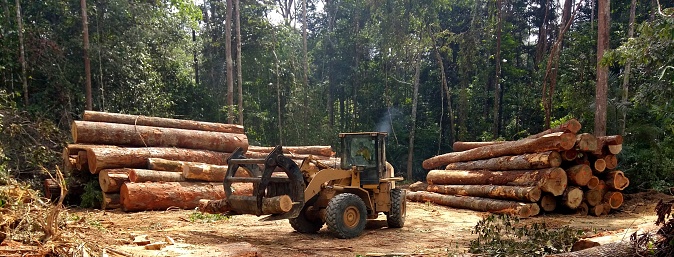
African hardwoods are ideal for both indoor and outdoor use as they can withstand significant wear and tear, maintaining their beauty and functionality over time. The combination of strength and durability makes African hardwoods a top choice for those seeking high-quality materials for their projects.
Aesthetic Appeal
Parallel with the diversity is a wide range of colors, patterns, and textures of African wood species. For instance, Sapele features a rich reddish-brown hue with a unique ribbon-like grain, while African Mahogany has a deep brown color. Meanwhile, the vibrant red-yellow color of Padauk wood makes it beautiful for any wood artwork. This attention to detail makes African hardwoods highly favored by designers and craftsmen for high-end furniture, cabinetry, and decorative items.
Due to these characteristics, wood buyers always request close-up images of the wood surface from the sellers.
Versatile Applications
Most African hardwoods are highly versatile and suitable for both indoor and outdoor projects. Their durability, especially their resistance to moisture and insects, makes them ideal for a wide range of uses, including flooring, furniture, construction, and marine applications, among others.
Abundant Supply
Africa has a large forested area, providing a rich source of wood, and ensuring consistent availability for various projects.
This means that African hardwoods are readily accessible, keeping prices competitive and ensuring that projects can proceed without delays. The reliable supply of these woods makes them a dependable choice for both large-scale constructions and small custom projects. However, buyers must find a reliable wood supplier to avoid scams, poor-quality wood, and illegally logged timber.
Top 4 Sourced African hardwoods
Among thousands of wood species in the African rainforest, here are 4 main species of hardwood that you should consider when choosing the right materials for your woodworking projects.
Iroko

Origins: Tropical central Africa.
Common uses: Exterior decking, flooring, furniture.
Appearance: Golden yellowish-brown.
Native to central tropical Africa, from Mozambique to Guinea, Iroko trees grow very slowly, living up to 500 years.Iroko, also known as “African teak,” is a highly durable and dense hardwood, resistant to insect attacks. It’s perfect for exterior decking, fencing, flooring, and furniture making.
It’s also called kambala and is used for furniture, veneer, flooring, boatbuilding, and cabinetry.
Sapele

Origins: West African tropical rainforests.
Common uses: Flooring, furniture, paneling, veneer.
Appearance: Reddish-brown.
Sapele exotic timber darkens from pale yellow to an alluring reddish-brown with age. Its interlocking grain pattern offers a unique appearance, and its exceptional durability, strength, and rot resistance make it ideal for furniture, veneers, musical instruments, paneling, and boatbuilding.
Originally from the Ivory Coast’s rainforests, Entandrophragma cylindricum is now found as far east as Tanzania. The timber gets its name from the Nigerian city of Sapele, where the tree is abundant.
African Mahogany
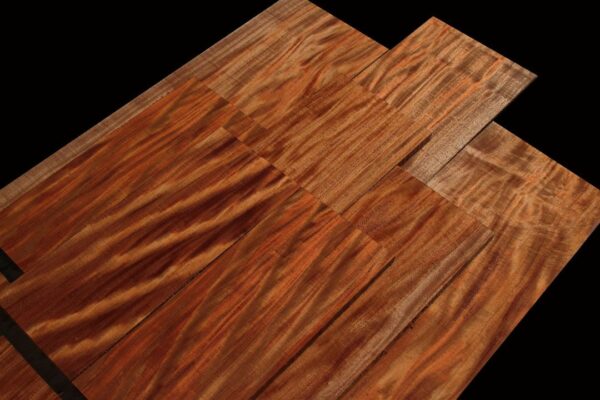
Other Names: Khaya, acajou d’Afrique.
Origins: Tropical West, Central, and East Africa.
Common uses: Veneer, turned items, furniture, plywood, boatbuilding, interior trim.
Appearance: Pale pink to dark reddish-brown, sometimes with darker streaks.
African Mahogany is the same as mahogany, sharing similar properties and appearance. With a dried weight of 545 kg/m³ and a Janka rating of 850 lbf, it has a straight or interlocked grain and a medium to coarse texture. Moderately durable, it is easy to work with despite its lower insect resistance compared to Iroko. This versatile wood is widely used for veneer, furniture, plywood, and boatbuilding. It originated in the Ivory Coast’s rainforests and can now be found as far east as Tanzania.
Afzelia

Other Names: Doussie
Distribution: West, Central, and East Africa.
Common uses: High-class joinery, doors, window frames, floors, staircases, ornamental carved doors, and chests.
Appearance: Light-colored when freshly sawn, turning to rich reddish-brown.
Afzelia is a large tree reaching heights of 70-80 ft (21-24m), with a straight bole rarely exceeding 12-20 ft (3.7-6.1m). It has greenish-gray bark that flakes in circular patches. The wood is medium to coarse in texture with an interlocking grain and weighs 47-50 lb/ft³ (753-801 kg/m³). Durable and moderately termite-resistant, Afzelia is stable when seasoned and takes a high polish. It’s ideal for both indoor and outdoor applications, especially in decorative and structural projects.
Conclusion
African hardwoods are highly valued for their diversity, exceptional quality, and aesthetic appeal. From Iroko and Sapele to African Mahogany and Afzelia, these woods provide strength, durability, and beauty for various projects.
As a leading African wood supplier, K-Timber offers high-quality, sustainably sourced African timber and wood logs at the best prices. Contact us today to inquire about availability and pricing.
With over 20 years of experience, K-Timber ensures top-quality products and stable prices. Our strict manufacturing processes and commitment to excellence make us a trusted partner in the timber industry.



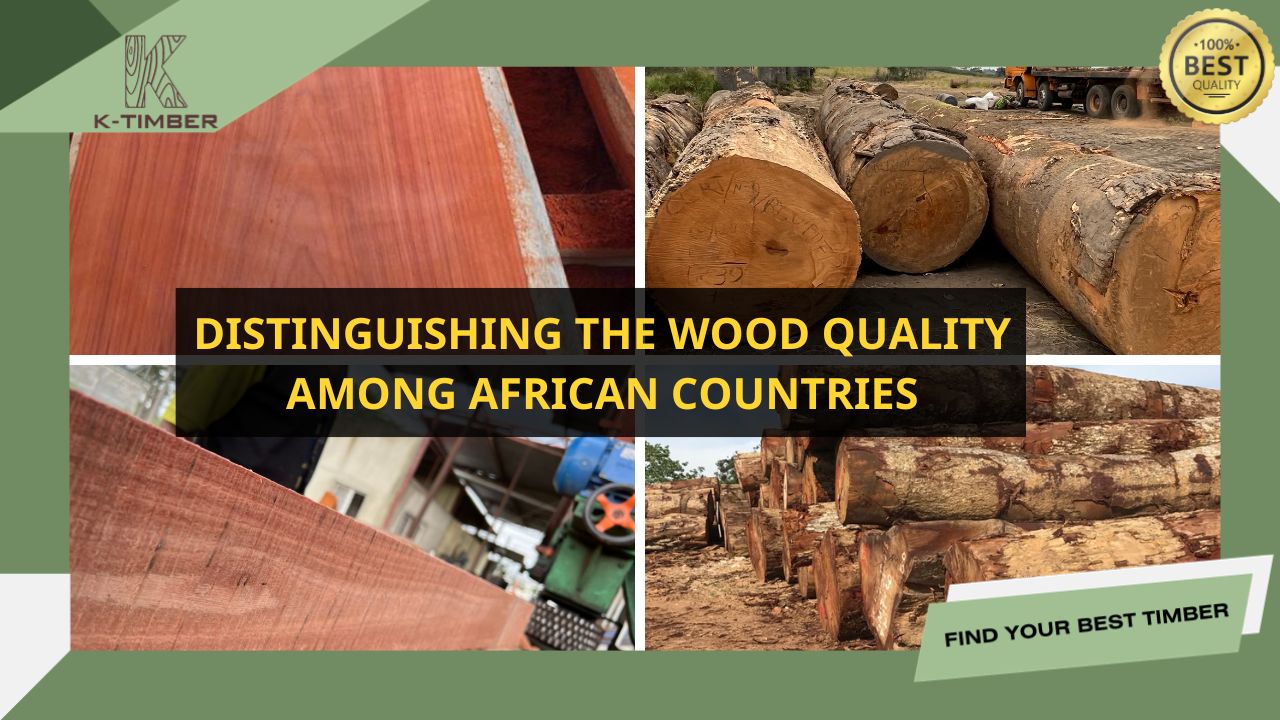

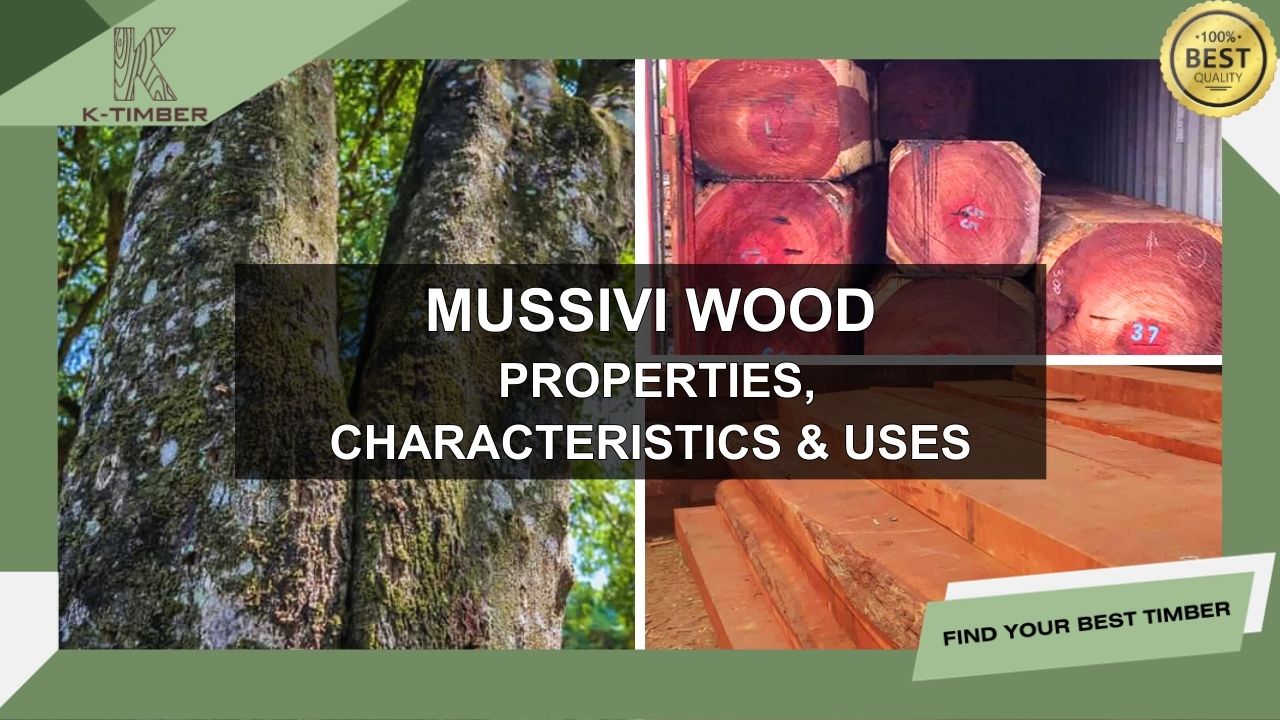
![[K-Timber] Blog Post Boder](https://k-timbers.com/wp-content/uploads/2024/07/K-Timber-Blog-Post-Boder-3.png)
